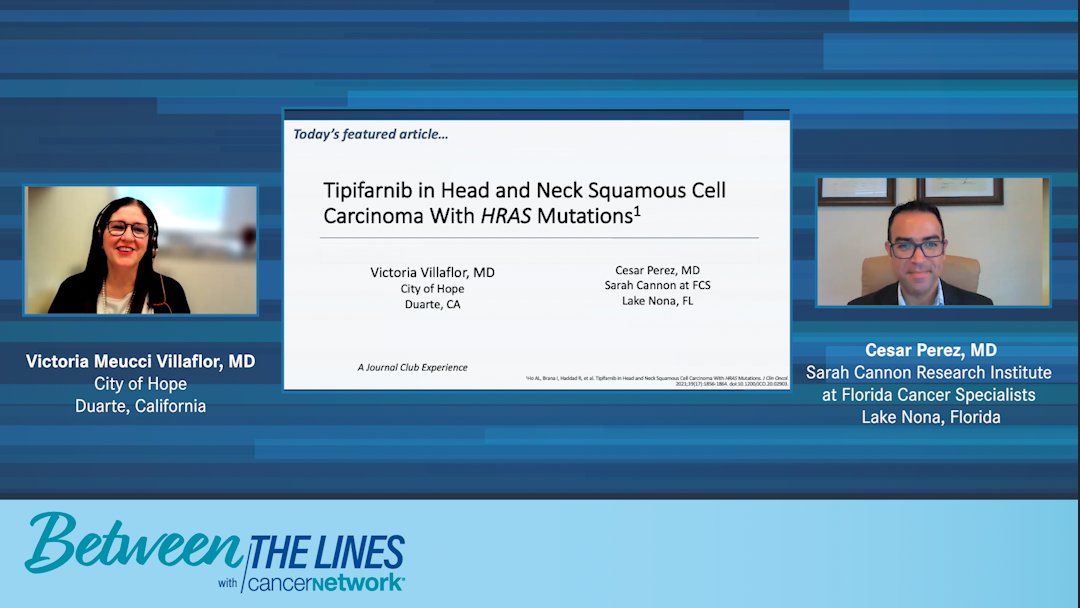
HRAS Mutations in Head and Neck Cancer

The significance of studying strategies that target HRAS mutations in head and neck squamous cell carcinoma.
Victoria Meucci Villaflor, MD: How does this paper add to the understanding of HRAS mutations in head and neck squamous cell carcinoma? Dr Perez, what are your thoughts?
Cesar Perez, MD: We definitely have wonderful news of the activities of KRAS inhibitors, with sotorasib for patients with non–small cell lung cancer whose tumors have a KRAS 12C genetic mutation. But tipifarnib is not a direct inhibitor of HRAS; it’s a farnesyltransferase inhibitor. It’s very interesting how we got to the understanding that HRAS is dependent on the farnesylation. That’s different from the other RAS mutations. It’s a very particular and interesting finding how we got to understand that all these HRAS abnormalities are completely different. They depend on different enzymes to be activated.
Victoria Meucci Villaflor, MD: I totally agree. It’s very promising. We need more data to come out, but for all the reasons you said, this adds to our current understanding. The understanding of HRAS until recently has simply been that HRAS mutations are bad, and we didn’t have much for them. This is helping chip away at a lot of the more personalized—or even more precision—medicine in the head and neck arena.
Transcript edited for clarity.
Newsletter
Stay up to date on recent advances in the multidisciplinary approach to cancer.




































